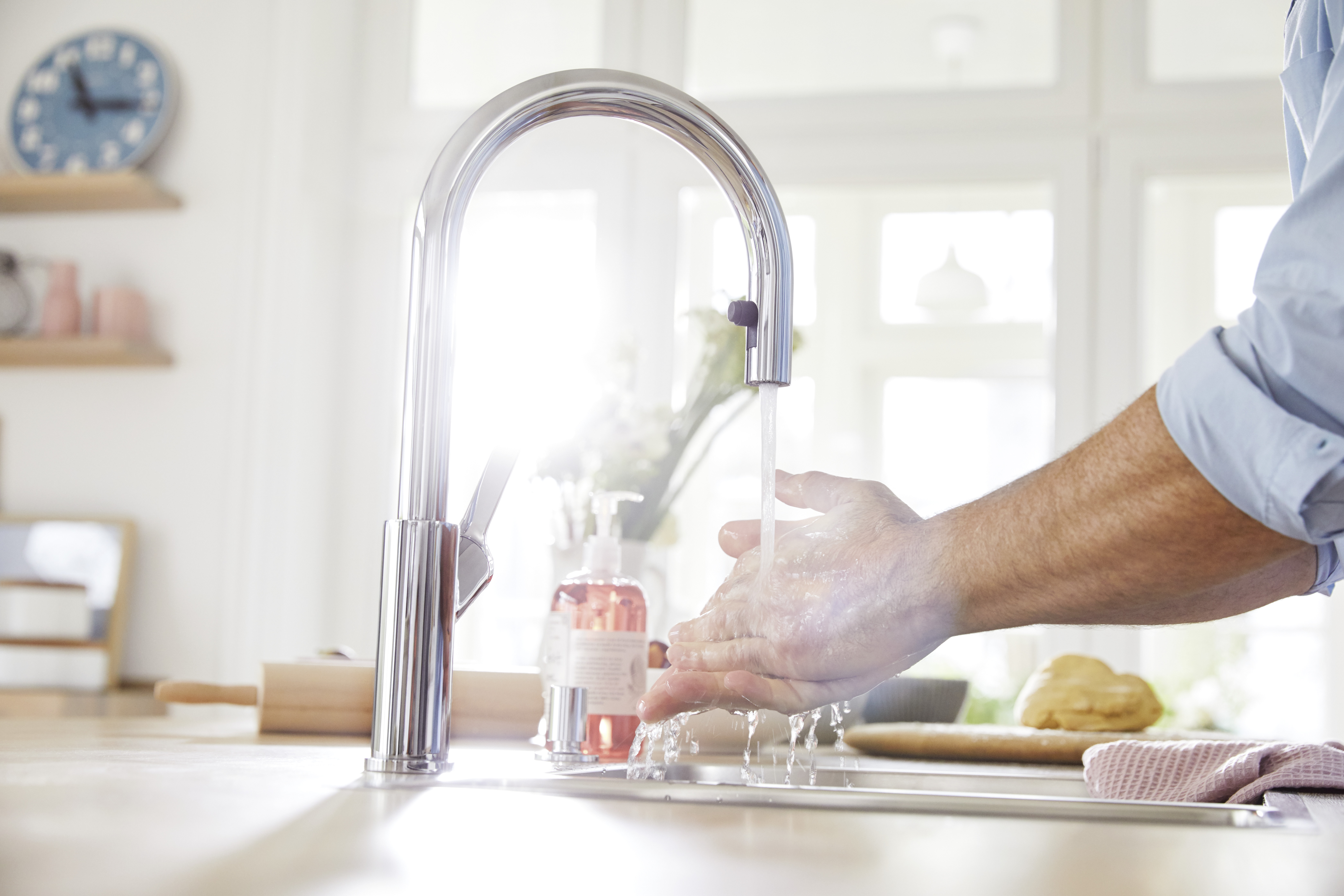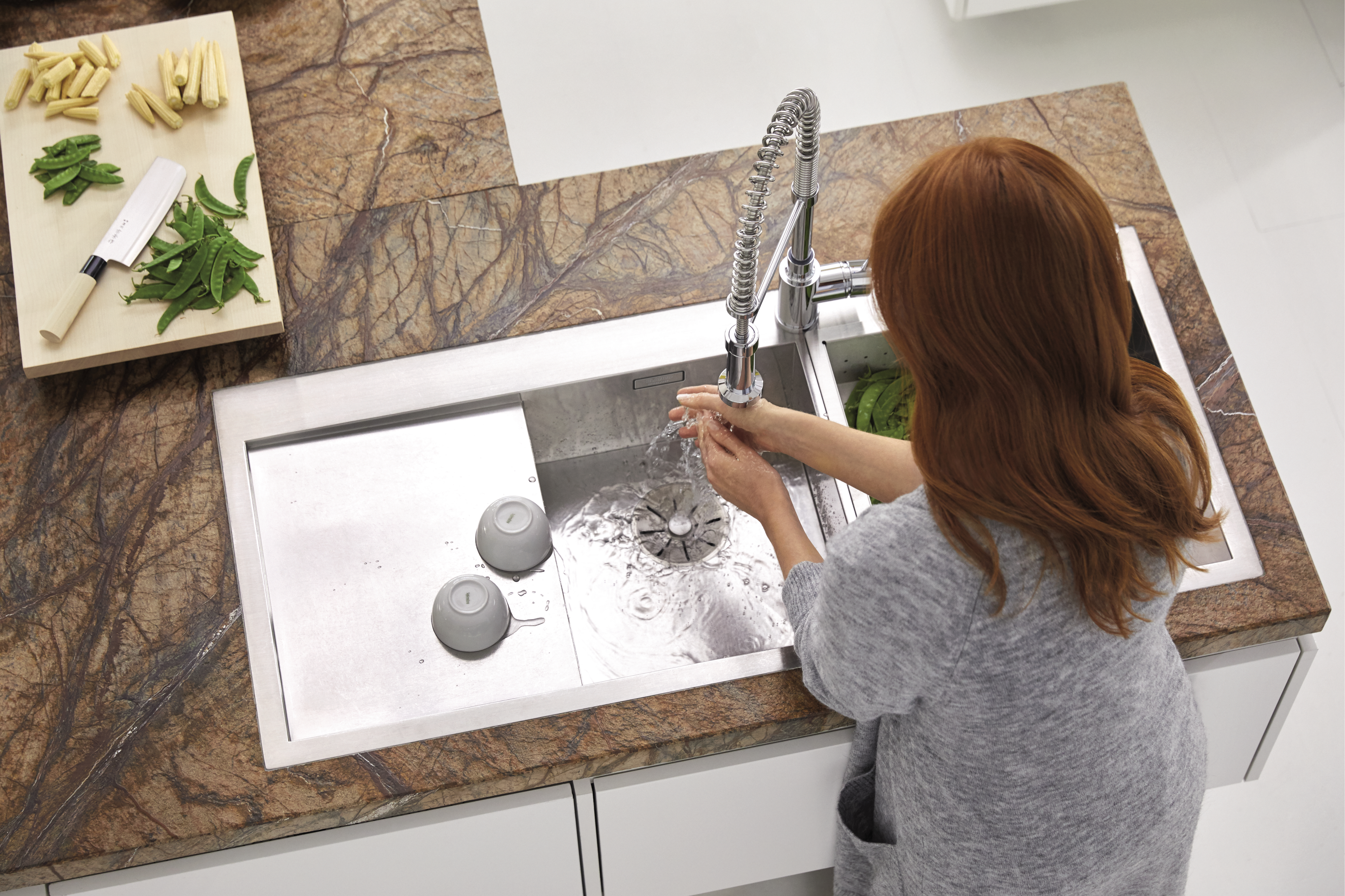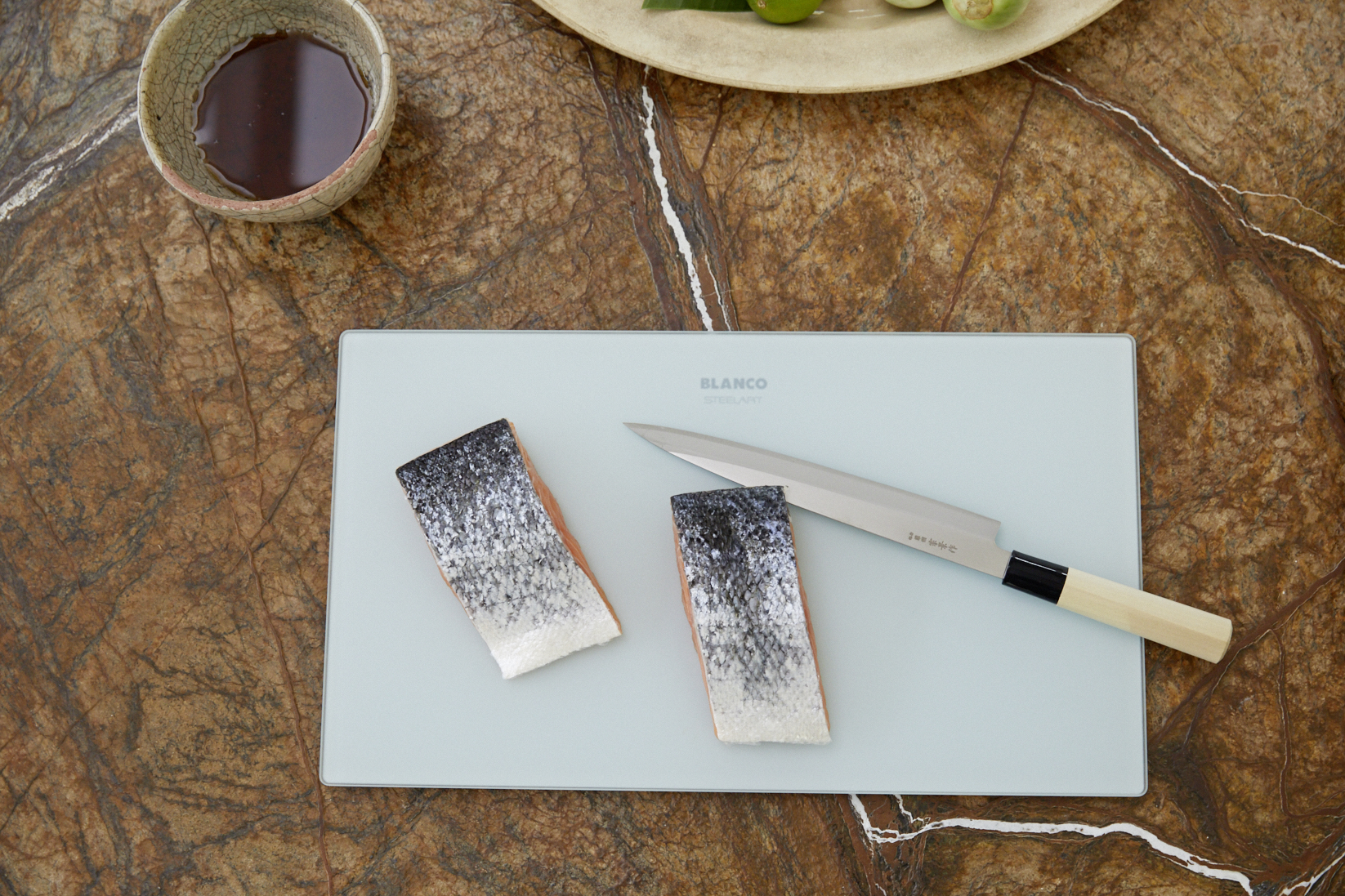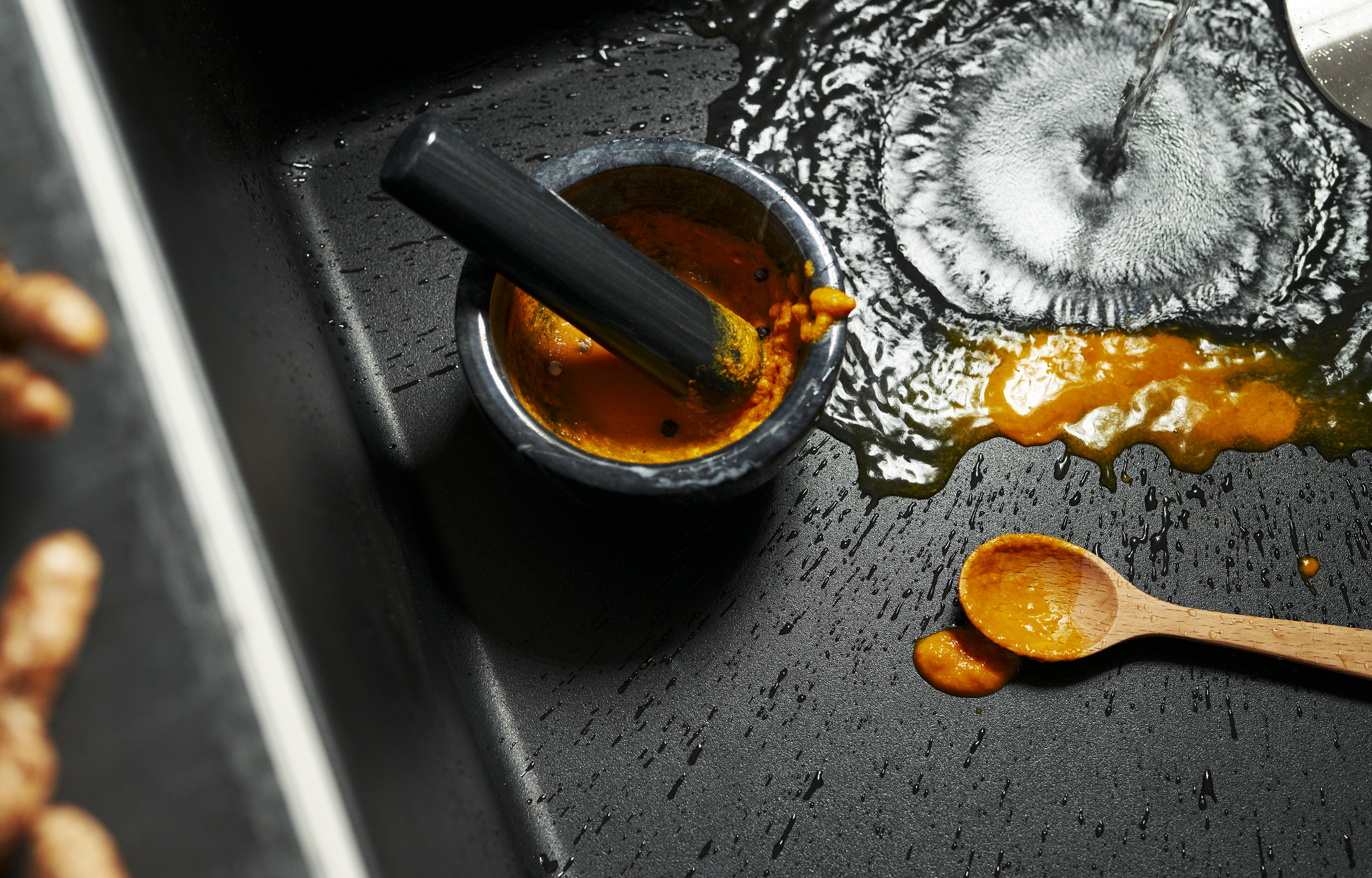Don't forget to wash your hands
no cooking without clean hands
Kitchen tasks cannot be done without using your hands, so we all know that preparing meals also means thoroughly washing your hands. After all, together with safety, cleanliness is one of the most important criteria in the kitchen.
How to wash your hands properly

Washing-up liquid is not suitable for hand-washing.
Lots of people tend to use washing-up liquid to give their hands a quick wash in the kitchen. However, the pH value of this makes it unsuitable for your hands. It’s better to use hand soap, as the lipid coating protects the skin and cannot be damaged. Healthy skin is essentially less vulnerable.
Damp hands transfer germs more quickly

The transfer of food-borne germs

Do I have to disinfect my hands?
The shelves of supermarkets are growing with soaps and washes marked ‘antibacterial’. These contain substances that can kill a variety of pathogens such as bacteria and fungi, or at least help to prevent them from reproducing. However, washing with completely normal soap is quite sufficient. Disinfecting your hands is unnecessary in household kitchens and will put an unnecessary strain on your skin and the environment.
Looking after cooking utensils
Clean knives, chopping boards and worktops thoroughly after you have been working with raw meat or fish, and before using the same implements to cut up vegetables. Ideally, you should use different chopping boards and knives for different foods. Consider changing your chopping boards every so often.

